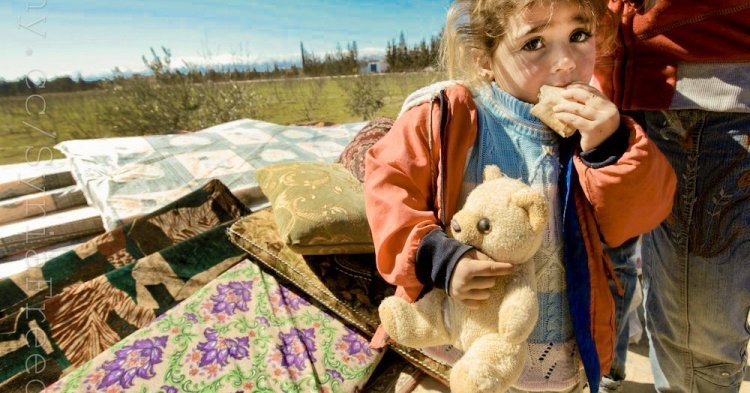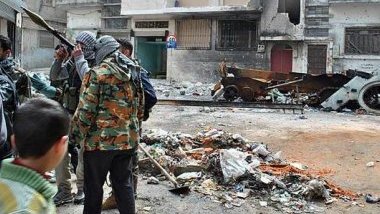Too big to be ignored
Syria has a large population. As simple as it may sound, this largely explains why such a large number of migrants have recently reached the continent. Germany has taken in more Syrian refugees in the last year than Polish economic migrants moved to Britain since 2004. The size of population movements has lead to border controls collapsing at several key points. This in turn has led to a snow balling of migrant numbers as other nationalities seek to profit from the weakened borders. A large proportion of the asylum seekers in Germany last year have been judged to be economic migrants from the southern Balkans.
The absence of natural ties
National history is key to understand a country’s response to unexpected waves of migration. Historically, migrants often rely on their neighbour – or their ’motherland’ - to host and understand them. Thus, crises in Algeria and Pakistan usually lead to responses from the French and British states respectively. The ongoing crisis in Ukraine is seeing Poland lead Europe’s response. Migrants tend to follow these same geopolitical trends. But the Syrian crisis has had no natural leader. Germany has therefore become the de facto leader, most welcome to refugees from a country – Syria – that didn’t neatly fit into the sphere of influence of any other European country. To comply with this new capacity as a refugee-hosting country Germany has amended its asylum laws in the same manner as France, Britain and the Netherlands have for their former colonies.
Syrians’ golden feet
The Syrian migrants are for the most part urbanised and well-educated. Syria has been a successful and functional state which has now fallen apart. Similarities can be seen with Ugandan Asians, the Pieds Noirs, or indeed the Lebanese fleeing their civil war a generation ago. The migrants who have arrived at Europe’s shores have used their money and know-how to traverse the continent in a way previous migrants have not been able to. They have responded to changes in national responses in real time with near perfect knowledge. These same skills which have made them adept at reaching Europe will make them an asset to Europe in the future, as Ugandan Asians, the Pieds noirs and the Lebanese have done before them. This is in contrast with those left behind - whether in Syria or in the refugee camps surrounding the country - who are disproportionately poorly educated, rural, and natural dependants upon others- the old, the young and the infirm. The new Syrian population of Europe, speaks the languages of Europe often with accents learnt from ‘Loony tunes’ and ‘Tintin’- they have the means to integrate and contribute in a manner that some previous refugees to Europe have struggled to do.
The mirror beyond the borders
The arbitrary nature of drawing a border around Europe has real consequences. We heard during the horrors of the Balkan Wars that extremism had reached Europe for the first time since the Second World War, and Europe and the world could not stand by and let this happen. Instead, during this crisis, we have heard leaders of well-respected central European nations state claiming that Europe’s cherished Christian values would be at risk from invading Muslim migrants. Syria is not a part of Europe, but Europeans still have a moral obligation not to ignore their plight. Furthermore, given Syria’s proximity to Europe, Europe will inevitably face practical considerations. Although Syria is not a European country, it has a sizeable Christian minority whose experience living in multicultural societies could be invaluable for Europe; this will certainly prove to be crucial in finding a European response involving the plethora of divergent views from different European nations.
Europe must now face that its traditional asylum paradigm won’t be of much help to understand the realities of the Syrian refugees crisis. Syrian migrants have all of the skills to make a contribution to their new countries. We must look beyond the hundred kilometres separating Syria from Europe.




1. On 14 September 2015 at 12:06, by Suzana Carp Replying to: Why is the Syrian Refugee Crisis Different ?
Replying to: Why is the Syrian Refugee Crisis Different ?
Good article on several points, especially as it emphasizes that many of the Syrian asylum seekers (!) are highly skilled/qualified/urbanized.There are 2 factors which haven’t been mentioned: 1. Angolan migrants to Portugal and Somalis in Sweden often integrate along church-based groups (there are studies on this); 2. Daesh/Isis in conjunction with populism have created a fear of Islam in Europe. This is also why the situation is different (also, the other migrations weren’t labeled as a ’crisis’ because the crisis now is on both ends (origin & receiving end).
Follow the comments: |
|
